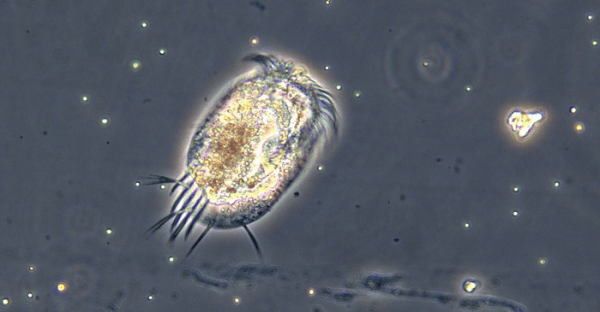It’s hard to know what climate change will mean for Earth’s interconnected and interdependent webs of life. But one team of researchers at Duke University says we might begin to get a glimpse of the future from just a few ounces of microbial soup.
Every drop of pond water and teaspoon of soil is teeming with tens of thousands of tiny unicellular creatures called protists. They’re so abundant that they are estimated to weigh twice as much as all the animals on Earth combined.
Neither animals nor plants nor fungi, the more than 200,000 known species of protists are often overlooked. But as temperatures warm, they could play a big role in buffering the effects of climate change, said Jean Philippe Gibert, an assistant professor of biology at Duke.
That’s because of what protists like to eat. They gobble up bacteria, which release carbon dioxide into the air when they respire, just like we do when we breathe out. But because bacteria account for more of the planet's biomass than any other living thing besides plants, they are among the largest natural emitters of carbon dioxide — the greenhouse gas most responsible for global warming.
Read more at: Duke University
Scientists say a few simple measures of a protist’s cell size and shape can be powerful predictors of how they might respond to global warming. (Photo Credit: Dan Wieczynski)


